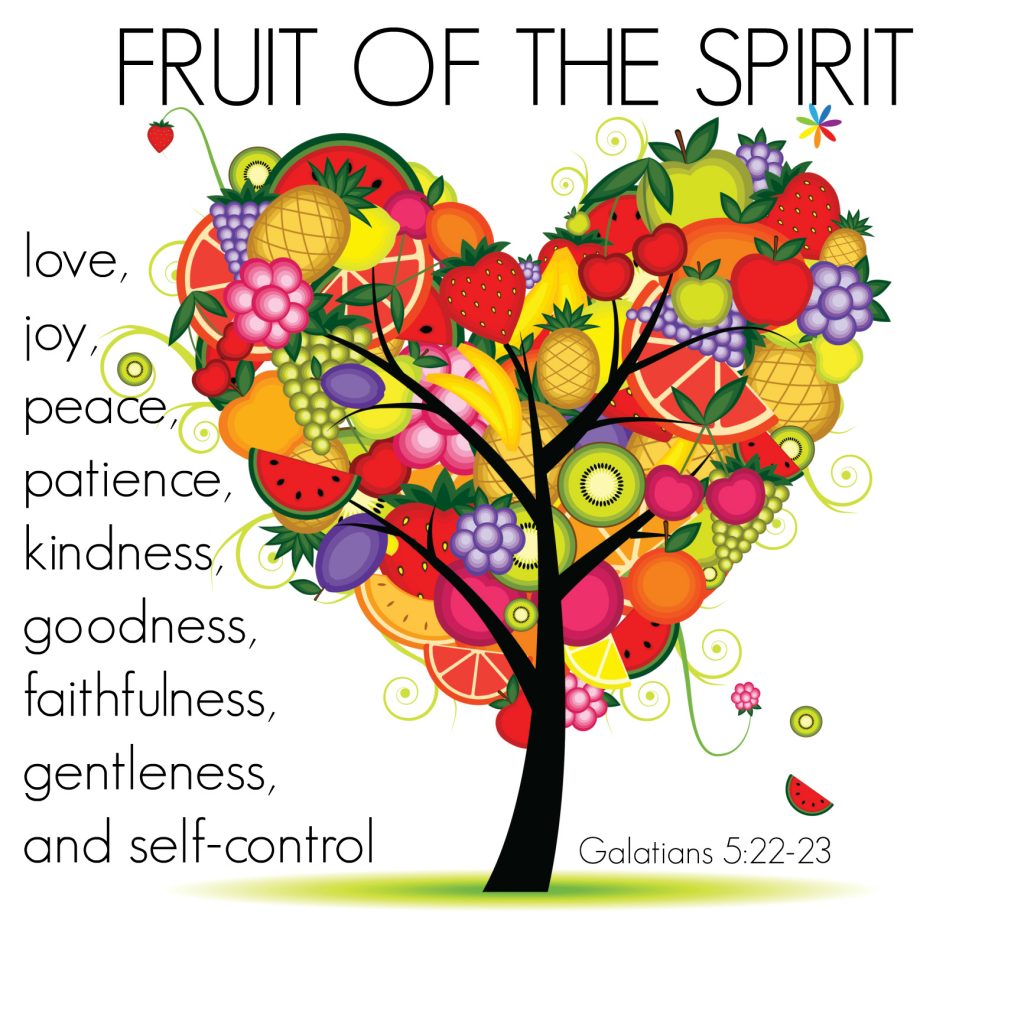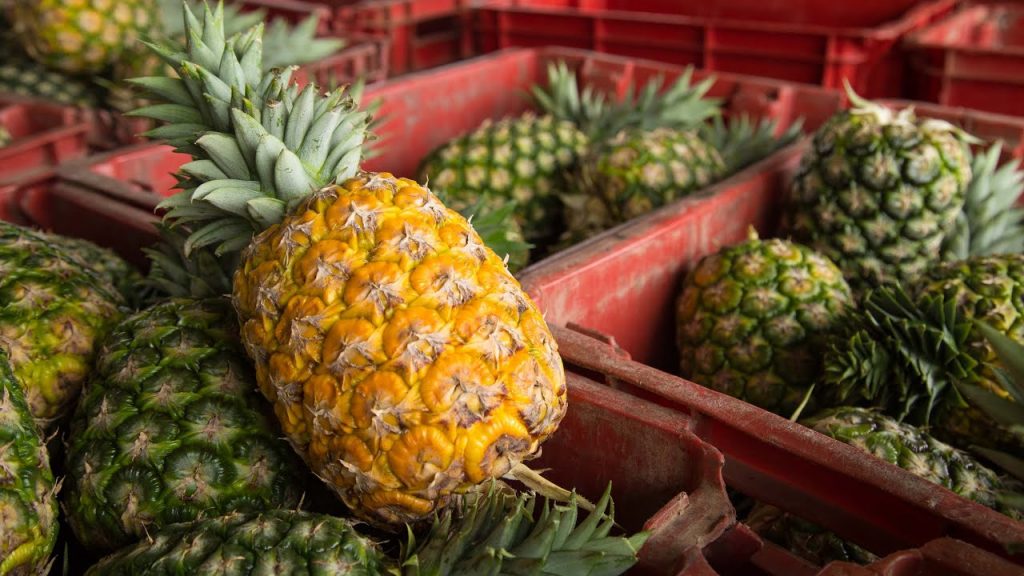
OUR NEED OF THE SPIRIT
“And it came about that while Apollos was at Corinth, Paul having passed through the upper country came to Ephesus, and found some disciples, and he said to them, “Did you receive the Holy Spirit when you believed?” And they said to him, “No, we have not even heard whether there is a Holy Spirit.” And he said, “Into what then were you baptized?” And they said, “Into John’s baptism.” And Paul said, “John baptized with the baptism of repentance, telling the people to believe in Him who was coming after him, that is, in Jesus.” And when they heard this, they were baptized in the name of the Lord Jesus. And when Paul had laid his hands upon them, the Holy Spirit came on them, and they began speaking with tongues and prophesying. And there were in all about twelve men.” – “Acts 19:1-7”
- They answered, “No, we have not even heard that there is a Holy Spirit.” – “Verse 2”
Now we consider the way in which the ministry of the Holy Spirit plays a part in our spiritual growth.
When Paul arrived at Ephesus, he found a group of disciples who, though familiar with the teaching of John the Baptist, lacked a dramatic encounter with the Holy Spirit. These disciples were disciples in name only, for lacking the dynamic of the Spirit, they had little to live by and little to offer.
A Holy Spirit-less Christianity lacks, contagion. lt has no driving power, and thus it fails to turn a “Contained faith” into a “contagious one”.
Jesus knew full well that for Christians to grow and develop into His image they required an endowed life. This is why, following the completion of His mission on earth, He commanded His disciples to stay in Jerusalem until they were “clothed with power from on high” – “Luke 24:49”.
Despite the world-wide interest in the ministry of the Spirit, which is characteristic of the times through which we are passing, there are still some who regard the Third Person of the Trinity as relatively unimportant. Had the early disciples tried to bypass Pentecost, it is doubtful whether we would have heard of them again; they would have exhausted themselves trying to cope with their problems.

Lost in the sands
In California, there is a river that starts out from a source high up in the mountains, but never gets to the sea because somehow it gets lost in the sands of the desert. Some people’s spiritual development is like that, it starts off all right but is soon lost in the sands of doubt and unbelief.
If we bypass Pentecost, we will have no dynamic for our spiritual development.
“Now the deeds of the flesh are evident, which are: immorality, impurity, sensuality, idolatry, sorcery, enmities, strife, jealousy, outbursts of anger, disputes, dissensions, factions, envying, drunkenness, carousing, and things like these, of which I forewarn you just as I have forewarned you that those who practice such things shall not inherit the kingdom of God. But the fruit of the Spirit is love, joy, peace, patience, kindness, goodness, faithfulness, gentleness, self-control; against such things there is no law. Now those who belong to Christ Jesus have crucified the flesh with its passions and desires. If we live by the Spirit, let us also walk by the Spirit. Let us not become boastful, challenging one another, envying one another.” – “Galatians 5:19-26”
- “But the fruit of the Spirit is love, joy, peace, patience, kindness, goodness, faithfulness, gentleness and self-control…” – “Verses 22-23”
Today we must ask ourselves a basic question. Does the Holy Spirit live in me? If you have received the Lord Jesus Christ as your Saviour, and have confessed Him to be your Lord, then without doubt the Holy Spirit is living within you.

THE FRUIT OF THE SPIRIT
This brings us to the next question. If the Holy Spirit is living in me, how can I tell He is there?
I can tell by the fruit of His presence as described so beautifully in the passage before us.
- Love – am I able to love the people I don’t like?
- Joy – am I a really happy Christian?
- Peace – does my peace go to pieces in a crisis, or am I poised and serene?
- Patience – am I free from self-pity?
- Kindness – do I excel in the simple kindnesses which are above and beyond my temperament?
- Goodness – Jesus went about doing good. Do I?
- Faithfulness – am I able to trust Him even when I can’t trace Him?
- Gentleness – am I gentle in my approach to others?
- Self-control – am I balanced and temperate in all things?
These nine qualities of life are the natural outcome of the Holy Spirit living within us.
Some think that the presence of the Spirit in our lives is expressly for the purpose of producing signs and wonders. This is part of His purpose, of course, through the Baptism in the Holy Spirit; but principally He indwells us in order to make us like Jesus, in purity as well as power.
Paul refers to the outcome of the carnal nature as “works of the flesh” – AV but the result of the indwelling Spirit is described as “fruit”. Is there a difference? “Works” indicates something manufactured; “fruit” points to something developed.
When the Spirit indwells our lives, we don’t have to work at being good, goodness grows in us.
“These things I have spoken to you, that My joy may be in you, and that your joy may be made full. This is My commandment, that you love one another, just as I have loved you. Greater love has no one than this, that one lay down his life for his friends. You are My friends, if you do what I command you. No longer do I call you slaves, for the slave does not know what his master is doing; but I have called you friends, for all things that I have heard from My Father I have made known to you. You did not choose Me, but I chose you, and appointed you, that you should go and bear fruit, and that your fruit should remain, that whatever you ask of the Father in My name, He may give to you. This I command you, that you love one another. If the world hates you, you know that it has hated Me before it hated you. If you were of the world, the world would love its own; but because you are not of the world, but I chose you out of the world, therefore the world hates you.” – “John 15:11-19”
- “1 Corinthians 13 :1-13” – “… But the greatest of these is love.” – “Verse 13”
We’ve already said that having the Holy Spirit within us produces a quality of life with nine distinct characteristics.

THE FRUIT OF LOVE
The first of these is “love”. To grow spiritually is to grow in love, and without love, all other growth is simply cancerous rather than constructive.
J. B. Phillips puts it this way – “While knowledge may make a man look big, it is only love that can make him grow to his full stature” – “1 Corinthians 8: 1” .
Knowledge without Love
In our schools, colleges and universities, the emphasis is placed in the other direction. “Know the facts and how to relate those facts to the world around and you will be successful”, say our modern educationalists. But then comes disillusionment, for we know the facts about many things and yet without love, the possibilities turn into problems. We know the facts about nuclear energy, but instead of it being used solely for the benefit of mankind, the world trembles lest its awful power falls into the wrong hands. Love could transform this into something useful and beneficial to humanity.
Knowledge without love can tell us everything about life-except the way to live it.
A young man in a university tore up his diploma, flung the pieces into his professor’s face and said, “You have taught me how to make a living, but you haven’t taught me how to live.” The knowledge which fills the educational establishments of our world may look impressive and imposing, but without love it is nothing at all. If love is unable to solve a problem, it dissolves it. “My command is this – Love each other as I have loved you.” – “Verse 12”
We are considering the primacy of love and seeing that it is the most essential ingredient in our spiritual growth. Celsus, one of the many critics of Christians and Christianity in late antiquity , wrote sardonically, “ ‘These Christians love each other even before they are acquainted.” – Ketcherside, chap. 11,”. They couldn’t help it because the very nature of the faith they had embraced was love. Celsus found Christian love absurd. Yet, how much more absurd would someone like Celsus find the idea that although God is acquainted with us already and knows for a fact that we are not lovable, He loves us anyway?
Another first-century writer sometime between about 150 and 225 AD, penned one of most winsome and descriptive commendations of the Christian church ever written. It is called The Epistle to Diognetus. He said, “What the soul is to the body, so are Christians to this world. They hold the world together”.
They did then and they do now, for without love no personality can hold together. Since it is love that holds our beings together, we should follow the apostle Paul’s advice as given in “1 Thessalonians 3:12” – “The Lord make you increase and excel in love” – Moffatt.
The only room for competition in Christianity is over the question of who can excel in love. This doesn’t mean that we strain to love, but simply let God’s love live within us. John puts it this way: – “Yet if we love each other God does actually live within us, and His love grows in us towards perfection” – “1 John 4:11” – J.B. Phillips. Note the phrase, “His love grows in us towards perfection”.
We don’t have to try to love, but just let love flow through our beings, and as we do, we grow in love toward perfection. lt simply means that His perfect love perfects our love and also perfects us in the process. To grow in love is to grow in life, for if you love you live, and if you don’t love you don’t live.

THE FRUIT OF JOY
“But the fruit of the Spirit is love, joy, peace, patience, kindness, goodness, faithfulness, gentleness, self-control; against such things there is no law.” – “Galatians 5:22-23”
- “But the fruit of the Spirit is … joy…”– “Verse 22”
We turn now to the second fruit of the Spirit, joy.
I don’t think it is accidental that joy comes second to love, as joy is really a by-product of love. This characteristic of the indwelling Spirit is much deeper than happiness, for happiness, as the word suggests, depends on what happens. If what happens, happens happily, then we are happy.
Joy, the fruit of the Spirit is not dependent on happenings, and produces in our hearts a sense of well-being, even in the midst of the most serious crisis.
Some psychologists have conducted research into the question of why people drink alcohol, and the conclusion they came to was this: – “to get drunk”.You and I could probably have told them that before they started, but the real question is: – “Why do people want to get drunk?”. “Is it not to get away from the inner emptiness, or to escape the day-to-day dilemmas with which they are faced?”
A Christian has no inner emptiness from which he wants to run away, because he rejoices in the fullness of life which he has experienced in Christ Jesus. He doesn’t want to escape from dilemmas because he has already run into the arms of God and knows a security which is eternal.
I once saw a sign on a church notice board which said, “When life hands you a lemon, turn it into lemonade.” This is what a Christian does every day with life’s problems and dilemmas, he takes the lemons and turns them into lemonade. The pressures of life serve only to squeeze the joy out of him, for he has learned not just to bear problems, but to use them.
“These things I have spoken to you, that My joy may be in you, and that your joy may be made full. This is My commandment, that you love one another, just as I have loved you. Greater love has no one than this, that one lay down his life for his friends. You are My friends if you do what I command you.” – “John 15:11-14”
- “I have told you this so that my joy may be in you and that your joy may be complete.” – “Verse 11”
The Christian’s joy springs out of his relationship with the Lord Jesus Christ, and his confidence in the truth which our Saviour imparted to us during His lifetime on this earth.
Our joy does not depend on what we: –
- Possess.
- What we achieve.
- What others do for us.
but rests solidly in our relationship with our Lord.
Rendel Harris says, “Joy is the strength of the people of God. it is their glory, their characteristic mark.”
Joy is one of the natural fruits of Christian living, and when indwelt by the Holy Spirit we cannot fail to manifest this characteristic in all situations. A Christian is able to do without things that many people depend upon for happiness, for their roots are not in temporal values, but in eternity.
- A Quaker watching a neighbour carrying expensive furniture and equipment into his home said, “Friend, if you find you need anything further, let me know and I will show you how to live without it.”
There are two ways to be rich; one is in the abundance of your possessions, and the other is in the fewness of your wants.
The passage before us today points to the fact that Christ’s joy and our joy are not different types of joy – but the same. “I have told you this so that you can share my joy and that your joy may be complete” – “John 15:11” – J.B. Phillips and Joy is the strength of the people of God.
You cannot, in fact, absorb the joy of Christ into your being without finding your own joy being made complete. We are made for joy and when we are in Christ and He is in us, we are in harmony with the whole universe. The music of heaven sings its way into our souls and we will still be singing when everything else has gone.

THE FRUIT OF PEACE
“But the fruit of the Spirit is … peace…” – “Verse 22”
We pass on now to the next fruit of the Spirit, which is peace.
I cannot help but feel that there is an inspired order in the listing of these characteristics. First love, then joy, and now peace. Out of love flows joy, and out of joy flows peace.
Someone has said: – “Peace is joy grown quiet and assured. joy is peace with its hat in the air, and peace is joy with its arms folded in serene assurance.” lt would not be possible to live all the time in utter ecstasy, so we simmer down to enjoy the depths of peace.
Before we go into the question of growing in peace, let us make one thing clear, we cannot know the peace of God until first we know the God of peace.
There is a problem which we all need to recognise, from the “youngest to the oldest” from the “immature to the mature” and that is of having a hostile heart.

Dr. Redford Williams from Duke University’s Behavioural Medicine Research Centre has been saying for years that having a hostile personality can kill us, and it is most often by heart disease, but also by injuries and accidents. Anger speeds the heart rate, raises blood pressure, disrupts the coronary arteries.
How does a hostile heart manifest itself, well they are numerous, but the most common are…….?
- Impatience with Delays.
- Mistrust of Co-Workers.
- Annoyance with the Habits of Family Members and Friends.
- A Persistent need to have the last word in arguments.
- A strong desire to “Get Even” when wronged.
We need in order to know of the fruit of the Spirit, in the context of which we are speaking, to firstly know of the new birth experience that only Jesus can provide for us.
The Bible tells us very clearly that “God commands all men everywhere to repent” and that being the case, we need to ensure that we have turned our lives around, and that we are following Jesus Christ, we can then know of the indwelling of His peace, and the fruit of His character PEACE becoming part of our personalities.
There is a system of teaching around today that suggests we can use God to give us peace of mind, and as we think about Him, and meditate upon Him, we will enjoy a deep inner tranquillity which will enable us to cope with the pressures of modern society. This using of God to give us peace of mind is very popular, but very false.
- Peace of mind can only come when we know peace of spirit, and the spirit can only be reached by a personal encounter with the Lord Jesus Christ, through the shed blood of Calvary.
To attempt to bring about peace of mind without the necessary change in the spirit is to violate the order of our beings – You just cannot have peace of mind if there is conflict in the spirit.
The Apostle Paul new something of this when he coined the words found in “Romans 7..but I see a different law in the members of my body, waging war against the law of my mind, and making me a prisoner of the law of sin which is in my members. Oh, Wretched man that I am! Who will set me free from the body of this death? Thanks be to God through Jesus Christ our Lord! So then, on the one hand I myself with my mind am serving the law of God, but on the other, with my flesh the law of sin.”
We have said it before, but it bears repeating again: – “we do not grow into grace, we grow in it.” We must first know the God of peace before we can know the peace of God.”
GROWING IN PEACE
“Peace I leave with you; My peace I give. to you, not as the world gives, do I give to you. Let not your heart be troubled, nor let it be fearful. You heard that I said to you, ‘I go away, and I will come to you.’ If you loved Me, you would have rejoiced, because I go to the Father; for the Father is greater than I. And now I have told you before it comes to pass, that when it comes to pass, you may believe. I will not speak much more with you, for the ruler of the world is coming, and he has nothing in Me; but that the world may know that I love the Father, and as the Father gave Me commandment, even so I do. Arise, let us go from here.” – “John 14:27-31”
- “Peace I leave with you; my peace I give you. I do not give to you as the world gives …” – “Verse 27”
Here, in this passage, we are promised as Christians the same kind of peace which our Lord Jesus Christ enjoyed. Later Jesus indicated to His disciples the one outstanding reason our hearts can remain in constant peace: – “Take heart! I have overcome the world” – “John 16:33”.
Within that world which He has conquered is included every single thing which we will ever have to face in our life. If we remain in Him and accept the fact that He has conquered the world, then we are absolutely secure, and can experience an unshakeable peace.
The peace which God gives us as believers is a peace that not only stands everything that comes our way but uses it to contribute to God’s glory and our well-being. When we know that everything that happens to us can be used, then we calmly await all situations, assured that by the grace of God, they can be turned to good effect.
A motto outside a church on the notice board read, “Don’t worry, it might never happen.” Not much comfort to someone in the middle of a crisis. The Christian message is that when things go wrong, and a crisis does happen, then through the alchemy of the Holy Spirit, God is able to turn the base metal of tragedy into the pure gold of triumph.
We know that God can turn every hurtful thing into a helpful thing, thus all is peace.

THE FRUIT OF PATIENCE/FORBEARANCE
“But the fruit of the Spirit is … patience …” – “Galatians 5:22”
We come now to the fourth fruit of the Spirit, patience.
The Authorised Version of the Bible uses the word longsuffering, while Moffatt refers to it as good temper others Forbearance. Someone has suggested that patience is really ‘love stretched out to its limit, so that it doesn’t break down into bad temper’.
Patience is not the same thing as resignation or the cynical attitude that always expects the worst possible outcome. Patience is a more positive trait. lt is the ability to bear affliction, delay and interruption with calmness, perseverance, and confidence in the goodness of God.
“Strengthened with all power, according to His glorious might, for the attaining of all steadfastness and patience; joyously giving thanks to the Father, who has qualified us to share in the inheritance of the saints in light.” – “Colossians 1:11-12”.
lt is inward peace as well as outward control. lt is the submission of our schedules, our viewpoints, our dreams to the greater plan of God, with the conviction that he has a good reason for every delay he allows to come our way.
Soil Preparation
“The testing of your faith produces patience.” – “James 1:3”
A family moved from the fertile farmlands of north western Ohio to Arizona. They wanted the kind of lush, green lawn they had back home, so they went to work on the rocky ground typical of the area. Using a pickaxe, the husband pried the largest rocks from the sun-baked earth. Then, on hands and knees, they sifted out the smaller stones until a layer of topsoil emerged. After planting seeds and watering the ground for several weeks, they had a green lawn.
If we want to plant a lawn or a garden, the soil must first be broken up. Even the most productive land must be turned over and tilled. Otherwise, growth is difficult, if not impossible.
God sometimes prepares the soil of human hearts to receive His Word by a breaking-up process. lt may be through a disaster like a hurricane, flood, or fire. Other times it comes through sickness, disappointment, or deep sorrow.
If we have been experiencing trouble or heartache, God may be softening the soil of our life so that the seed of His Word can grow in us. Don’t fight it. Let Him have His way. Allow Him to produce patience and maturity in our hearts – One day we’ll thank Him for His soil preparation.
Thinking lt over what kinds of “rocks” do trials often expose? How does my attitude toward God and my trials affect how much do I learn through adversity? Spiritual growth occurs when faith is cultivated.
When discussing the question of temper, the question often arises: – “did Jesus display a loss of temper when He turned on the money changers in the synagogue at Jerusalem?” I think not.
Although it is true that Jesus was angry, His reaction did not come out of self-concern, but anger at the defilement of His Father’s house. lt is possible to be angry without committing sin, and this happens when we are angry at nothing but sin. Loss of temper arises from a wound to our own ego, after which we lash back in retaliation.
The anger of our Lord was not retaliation, but redemption; it was concern and anger at what was happening to someone else, not at what was happening to Himself. That changed His anger from being destructive to being constructive.
His words were like a surgeon’s knife the cutting was not to hurt, but to heal. Redemptive anger burns with a steady flame of divine intention, but retaliatory anger simply burns up the person who manifests it. turns to good or bad depending on what is behind it.
Someone said, “There are two ways to honk the horn of a car, the Christian way and the unchristian way. One draws attention to a problem – the other draws attention to what the one honking feels about the problem.”
“But I say, walk by the Spirit, and you will not carry out the desire of the flesh. For the flesh sets its desire against the Spirit, and the Spirit against the flesh; for these are in opposition to one another, so that you may not do the things that you please. But if you are led by the Spirit, you are not under the Law. Now the deeds of the flesh are evident, which are: immorality, impurity, sensuality, idolatry, sorcery, enmities, strife, jealousy, outbursts of anger, disputes, dissension’s, factions, envying, drunkenness, carousing, and things like these, of which I forewarn you just as I have forewarned you that those who practice such things shall not inherit the kingdom of God.” – “Galatians 5: 16-21”
- “… live by the Spirit, and you will not gratify the desires of the sinful nature.” – “Verse 16”
Many Christians are adept at finding excuses for their bad temper. They say:-
- I was born this way.
- I have a physical condition which makes me like this.
- My mother was inclined this way too.
- I’m Irish-didn’t you know?
These and other reasons hide the truth concerning something that ought to be flushed out into the open and broken at the foot of the Cross. If we are to live dynamic lives for Christ and want to grow in our Christian experience, then we simply must not go on clinging to an alibi that hurts others and wounds the heart of God.
The greatest single influence in changing bad temper to good temper is the grace of God brought to us through the indwelling Holy Spirit.
In the 1904 revival an old Welsh miner recounted how during the revival he worked in the coal mines in charge of a team of work horses. If the horses would not respond in the way he desired, he would flay them with a rod, at the same time cursing and yelling in an almost demented fashion. Then one night he visited a church where he heard the Gospel and gave his heart to Jesus Christ. The next day, when tempted to beat the horses, he simply lifted his heart in prayer and said, “Lord, help me.” The presence of the Holy Spirit in his life helped him to restrain himself, so much so that the horses could not quite understand what was happening. “One of them he said, “seemed to turn around in surprise every few moments as if it couldn’t really believe its eyes.”
A Christian temper is so tempered that it produces no tempests only tenderness.

THE FRUIT OF KINDNESS
“But the fruit of the Spirit is … kindness …”
We come now to the next fruit of the Spirit, kindness, or gentleness as it is sometimes translated.
This fruit of the Spirit adds flavour to all the other virtues, and it is not by chance that it appears in the middle of this list of nine. Kindness for some people is natural, and they have it without any activity of the Holy Spirit at all. A close look at this, however, will reveal that such kindness is of the type that is natural rather than spiritual, and it is shot through with sentimentality.
In a Christian, kindness is never sentimental, never divorced from reality, and never evasive, it is grounded deeply in the nature of God, it flows continually within a Christian’s being, and does not cease when it is snubbed, injured or misunderstood. lt has a robustness and a pertinacity about it which is different from the sentimental kindness of the world.
One way to see the difference between sentimental kindness and the fruit of the Spirit is to watch what happens when praise and gratitude are not forthcoming, natural kindness tends to wither up, as it needs these things in order to thrive.
The Christian never gives up because spiritual kindness has its roots in the life of God. The apostle Paul said, “In everything we do we try to show that we are true ministers of God” – “2 Corinthians 6:4” – TLB, and in the twenty-eight things he names as proof of his ministry, he puts at the centre of these proofs the characteristic of “kindness” .
If, at the centre of our proofs of being true workers of the Almighty, we do not have kindness, then all the rest is a clanging gong or a tinkling cymbal.
“You have heard that it was said, “AN EYE FOR AN EYE,AND A TOOTH FOR A TOOTH.” But I say to you, do not resist him who is evil; but whoever slaps you on your right cheek, turn to him the other also. And if anyone wants to sue you, and take your shirt, let him have your coat also. And whoever shall force you to go one mile, go with him two. Give to him who asks of you, and do not turn away from him who wants to borrow from you. You have heard that it was said, ‘YOU SHALL LOVE YOUR NEIGHBOUR, and hate your enemy.’ But I say to you, love your enemies, and pray for those who persecute you in order that you may be sons of your Father who is in heaven; for He causes His sun to rise on the evil and the good, and sends rain on the righteous and the unrighteous. For if you love those who love you, what reward have you? Do not even the tax-gatherers do the same? And if you greet your brothers only, what do you do more than others? Do not even the Gentiles do the same? Therefore, you are to be perfect, as your heavenly Father is perfect.” – “Matthew 5:38-48”
“But I tell you: Love your enemies, bless those who curse you, do good to those who hate you…” – “Verse 44”
We are looking together at the fruit of the Spirit which is kindness. There are some who claim that it is not possible to live in this world and demonstrate the characteristics which Jesus displayed when He was living here on the earth. The only power they acknowledge is that of force and supremacy, any other way is futile. Some Christians often wonder whether the principles of Scripture really work, and they see kindness as more of a weakness than a power.
A German pastor stood looking out over the ruined city of Frankfurt which was beginning to rise again after its severe bombing during the last war, and with tears in his eyes watched a team of Christian young people from the United States participate in the rebuilding programme.
They had given up their holidays in order to help rebuild the city and, unused to such hard-physical labour, would fall asleep as soon as they hit their beds at night. One day, a German worker who had been very uncommunicative took out of his pocket a piece of cake, and offered it to one of the Christian workers, saying in broken English, “Take, eat.” lt seemed to echo the words of Jesus spoken long ago at the Last Supper, and in that one moment the chasm of fear and suspicion was bridged.
The Lord Jesus Christ gives us the high-water mark of conduct and character, and there will be no progress or growth unless we make Him our goal. He not only bids us rise to His level but pours into our beings the supply that enables us to meet His demands.

THE FRUIT OF GOODNESS
“But the fruit of the Spirit is … goodness…”
We are now looking at the sixth fruit of the Spirit, which is goodness, or as J.B. Phillips translates it, generosity.
Goodness is perhaps the hardest fruit of all to define as the word “good” (or even generous) is used so freely and widely that it can mean anything and nothing.
The goodness and generosity of a Christian is, however, a unique characteristic. lt radiates something which a non-Christian is unable to copy, as it is essential goodness, goodness “in the inner parts”.
Those who do not know Christ tend to put this goodness in a natural category, but we who belong to Him know better; it is spiritually derived. The radiations of this fruit of the Spirit are so powerful that it is doubtful whether anyone could be near it without feeling it. lt ought to be emphasised, too, that sometimes evil men are angered and made more hateful in its presence as it reminds them of Jesus Christ. Men cannot be reminded of Jesus and then continue on cheerfully in their unbelief. Many have stubbornly denied the existence of holiness until they have met it in a Christian, but once they have met it, they can never doubt it again.
We should not be surprised, therefore, if sometimes our goodness makes evil flare up, for by so doing, it shows it up for what it really is. Have we ever met a person in whom this goodness really dwells? Then we will not have forgotten the meeting. Life has few things to show more beautiful than this. Such men and women move through the world reminding people of Jesus Christ.

GENEROSITY GENERATES
“Now this I say, he who sows sparingly shall also reap sparingly; and he who sows bountifully shall also reap bountifully. Let each one do just as he has purposed in his heart; not grudgingly or under compulsion; for God loves a cheerful giver. And God is able to make all grace abound to you, that always having all sufficiency in everything, you may have an abundance for every good deed; as it is written, “HE SCATTERED ABROAD, HE GAVE TO THE POOR,HIS RIGHTEOUSNESS ABIDES FOREVER.” Now He who supplies seed to the sower and bread for food, will supply and multiply your seed for sowing and increase the harvest of your righteousness; you will be enriched in everything for all liberality, which through us is producing thanksgiving to God.” – “2 Corinthians 9:6-11”
- “Whoever sows sparingly will also reap sparingly, and whoever sows generously will also reap generously.” – “Verse 6”
In the fruits of the Spirit, six out of the nine are related to our attitudes toward other people, and only three can be said to refer to oneself alone joy, peace, and self-control. This would appear to suggest that we ought to have twice as much interest in others as we have in ourselves.
Jesus commented once that we should love our neighbours “as ourselves”, indicating that self-love and love for others should exactly balance.
A Christian group striving to build their lives on the New Testament pattern found themselves surrounded by hostile neighbours who threatened to “run them out of town” if they continued their Christian witness. One day a hen belonging to the most hostile of the neighbours flew over the fence of the Christian group and laid an egg.
Not knowing how to approach the situation because of their neighbour’s hostility, they tied some money covering the price of the egg to the chicken’s leg, together with a short note of explanation, and let it go. The reaction this brought about was staggering. The climate in the neighbourhood began to change as people realised that honesty and generosity were weapons that were too powerful to contest.
To grow in generosity, we should transfer ownership of all our belongings to God. Decide that we own nothing, this puts God in His place and us in ours. We are not free to manage our affairs as we like, but as He likes. Then let Him direct us day to day what we are to give, and where we are to give.

THE FRUIT OF FAITHFULNESS
“But the fruit of the Spirit is … faithfulness.”
The next fruit of the Spirit is faithfulness, or as J.B. Phillips translates it, fidelity.
Basically, the word contains the thought of complete honesty in all areas of relationships. We’ve said that the universe was designed for love, and without it the stars and galaxies would grind to a halt. The world was designed to run on honesty too, as the universe is not built to sustain a lie.
Modern scientific instruments can measure human truthfulness, and when a man is lying, they pick up certain sensations and report with mechanical coldness, “This man is not speaking the truth.”
We are designed for truth and when we violate the truth, our whole being rebels. One man once said, “In our fight with Communism, we are handicapped by our decency. We can’t do what they can do.”
Is this really a handicap? If we fight evil with evil, then we hit against a law deep within us that says, “This is not the Way.” The universe runs on truth, and when we work against it, we are pitting our strength against the might that guides the stars in their orbits. Anything established on a lie will ultimately fall, it may for a time appear to prosper, but inwardly it is doomed.
A newspaper reported of a minister who worked himself to a standstill in his church but was found to be a liar and a thief. His basic falseness cancelled out all his good works and became like sand in the machinery of life. In a world structured for truth, no one gets away with anything.
We either go with God and get results or go against Him and get consequences
“Render to all what is due them: tax to whom tax is due; custom to whom custom; fear to whom fear; honour to whom honour. Owe nothing to anyone except to love one another; for he who loves his neighbour has fulfilled the law. For this, “YOU SHALL NOT COMMIT ADULTERY, YOU SHALL NOT MURDER, YOU SHALL NOT STEAL, YOU SHALL NOT COVET,” and if there is any other commandment, it is summed up in this saying, “YOU SHALL LOVE YOUR NEIGHBOUR AS YOURSELF.” Love does no wrong to a neighbour; love therefore is the fulfilment of the law. And this do, knowing the time, that it is already the hour for you to awaken from sleep; for now, salvation is nearer to us than when we believed. The night is almost gone, and the day is at hand. Let us therefore lay aside the deeds of darkness and put on the armour of light. Let us behave properly as in the day, not in carousing and drunkenness, not in sexual promiscuity and sensuality, not in strife and jealousy. But put on the Lord Jesus Christ and make no provision for the flesh in regard to its lusts.” – “Romans 13:7-14”
- “Let us walk honestly, as in the day; not in rioting … not in strife and envying.” – “Verse 13”
How do we grow in fidelity? Make up your mind to be honest in thought, in speech and in the way you act. The question of whether it is ever right to lie can be settled for ever by this fact: God cannot lie, and He cannot delegate to you the responsibility of lying for Him.
The New Testament is quite clear on the subject, “Do not lie to each other.”, and the Bible, in fact, declares concerning all liars that “their place will be in the fiery lake of burning sulphur” – “Revelation 21:8”
The very first lie spoken in this universe was devised by Satan who said, “You will not surely die”, and he keeps on repeating that lie to every person that comes into the world. The truth is that when we lie, something dies deep within us, and the hardest penalty for lying is to be the one who has lied. As we have already said, it is like sand in the machinery of life.
A man who went through a seminar and returned to his work on the following Monday to confess to his employers that he had stolen some money from their till. He fully expected to be fired, but after several hours of discussion the directors agreed to give him another chance, and offered him a more responsible job, with an increase in salary.
Their comment was this, “If you know your God so well that He can help you keep your conscience clear, then we are prepared to trust you too.”
We should go over our lives and see where there are loose ends, broken promises, half-finished tasks and begin to complete them. When we do, something will happen deep inside us. We will be in harmony with God and His whole universe.

THE FRUIT OF GENTLENESS
“But the fruit of the Spirit is … gentleness …”
This eighth fruit of the Spirit is translated by J.B. Phillips as adaptability. The flavour of the Greek word suggests strength being released through tenderness and presents the picture of a Spirit – indwelt person in whom firmness is balanced with consideration for others. One of the best examples of this Spirit, given adaptability is the apostle Paul himself.
In “Philippians 4:11-12” he says, “I have learned how to get along happily whether I have much or little. I know how to live on almost nothing or with everything. I have learned the secret of contentment in every situation, whether it be a full stomach or hunger, plenty or want” – TLB
Paul was able to take privation and prosperity in his stride, and through the Holy Spirit’s indwelling became adaptable to all situations, without compromising his faith.
Some people can stand privation but cannot stand prosperity – Others can take prosperity but cannot take privation. Paul could handle both, because he had access to a spiritual strength and power which flowed into his personality by the Holy Spirit.
This ability to adapt to situations is God, given, and as we surrender to Him, He supplies the strength and power to help us do what naturally we would find impossible to do.
When Paul said, “I have learned the secret of contentment in every situation” he was saying in fact that he had learned how to receive the grace of God and make it contribute in both privation and prosperity.
He was able to adapt to anything that came, the question is “can we?”
“For though I v am free from all men, I have made myself a slave to all, that I might win the more. And to the Jews I became as a Jew, that I might win Jews; to those who are under the Law, as under the Law, though not being myself under the Law, that I might win those who are under the Law; to those who are without law, as without law, though not being without the law of God but under the law of Christ, that I might win those who are without law. To the weak I became weak, that I might win the weak; I have become all things to all men, that I may by all means save some.” – “1 Corinthians 9:19-22”
- “Though I am free and belong to no man, I make myself a slave to everyone, to win as many as possible.” – “Verse 19”
We are looking together at how to grow in adaptability. Some people are afraid of change and resist any attempt to bring about alteration in their attitudes.
The Fear of Change

A man who went through a Dynamic Christian Living seminar and said that he sat right at the front so that no one would see his anxiety when a new idea was presented. He feared the challenge to inner change, but fortunately he was able to respond to many of the concepts shared which brought about great improvement in his personality.
All growth involves change, not that we change our doctrines, for they are unchangeable, but we grow in our understanding of how to relate them to our everyday living.
Coping with bereavement
Some time ago when Pastoring a Church for a number of years a widow asked for help and advice on how she should cope with her problem. One of the greatest needs in this kind of situation is for adaptability, for it is right here, in the midst of deep loss, that the Holy Spirit can bring out His best.
if we have lost a loved one, don’t diminish the beauty of love by allowing it to degenerate into self-pity.
In this way we not only lose the loved one, but we also lose the love. Cling to the memory with gratitude, as that saves both the love and us. Break up life into little pieces and live a day at a time. God has promised enough grace for one day. You can borrow from tomorrow’s problems, but you can’t borrow from tomorrow’s grace.
Be adaptable, God lives in you to make the impossible become possible.

THE FRUIT OF SELF- CONTROL
“But the fruit of the Spirit is … self-control …”
We come now to the last of the nine fruits of the Spirit, self-control, or temperance.
lt is interesting that Paul puts this last, as some systems of thought would place it first.
Most of the world’s non-Christian philosophies, both ancient and modern, place great emphasis on this quality as being priority number one.
- Confucius believed that self-control would produce “the superior man”.
- Hinduism believes that self-control will produce “the realised man”.
- Stoicism believes that self-control will produce “the detached man”.
- The modern approach of Transcendental Meditation believes that self-control will produce “the happy man”.
The Christian approach is entirely different. lt emphasises love for Christ as being the first priority, and you gain self-control through love. This passage is the only place in the New Testament where the word self-control is used, and it is interesting to observe that it is shown to be the by-product of love.
St. Augustine said, “Love God-and do as you like.” He meant, of course, that when we love God, we can do as we like, for we will like what He likes, and will do nothing that He dislikes.
What abundant life we enjoy when we decide to move over and let Christ take the wheel. Then, and only then, can we hope to get through the business of living without any accidents or mishaps. When self-control is in Christ’s control, life is no longer a burden, but a blessing.
GROWING IN SELF-CONTROL
“Therefore, knowing the fear of the Lord, we persuade men, but we are made manifest to God; and I hope that we are made manifest also in your consciences. We are not again commending ourselves to you but are giving you an occasion to be proud of us, that you may have an answer for those who take pride in appearance, and not in heart. For if we are beside ourselves, it is for God; if we are of sound mind, it is for you. For the love of Christ controls us, having concluded this, that one died for all, therefore all died; and He died for all, that they who live should no longer live for themselves, but for Him who died and rose again on their behalf.” – “2 Corinthians 5:11-15”
- “For the love of Christ controls us …” – “Verse 14” NASB
We must spend just a little more time on this question of how to grow in self-control.
Paul opens up the secret of his own spiritual experience here in these magnificent verses, and shares with us the grand reason for all his achievements: – “The love of Christ controls us” or literally, “narrows us to His way”. When we begin with Christ everything else falls into place, but if we begin with something else, life turns out to be a mess, rather than a message.
If we begin with self-control, then we become the centre and get caught up in the business of controlling ourselves. This will exhaust us pretty quickly because we will become extremely anxious and wonder if we will slip out from beneath our own control.
A man once said, “I tried the Christian life from the angle of self-control. Every morning I would start the day by saying, Today I will live like a Christian.’ Every night I went to sleep knowing I was a failure.” How could an uncontrolled will control an uncontrolled self? “Then Christ moved in, I began to love Him, then the lesser loves dropped away.”
A diseased will could not heal a diseased soul. Have one supreme control the love of Christ, then all lesser loves will drop into their proper place.
If we begin, as Paul did, with Christ, then the spring of all our actions is love for Him, and we are automatically released from self-preoccupation to preoccupation with Him. When we begin with love for Jesus Christ we end up with self-control, but when we begin with self-control, we end up with a self that is anxious, fearful, and full of problems.

THE CENTRALITY OF CHRIST
“….giving thanks to the Father, who has qualified us to share in the inheritance of the saints in light. For He delivered us from the domain of darkness and transferred us to the kingdom of His beloved Son, in whom we have redemption, the forgiveness of sins. And He is the image of the invisible God, the first-born of all creation. For by Him all things were created, both in the heavens and on earth, visible and invisible, whether thrones or dominions or rulers or authorities, all things have been created by Him and for Him. And He is before all things, and in Him all things hold together.” – “Colossians 1:12-17”
- “He is before all things. and in him all things hold together.” – “Verse 17”
We must pause now to bring right into the centre of our minds the centrality of our Lord and Saviour Jesus Christ. With so much emphasis on the Holy Spirit in this study, we might be tempted to push Christ aside and make Him marginal, and the Holy Spirit central.
The emphasis of Scripture is always on the centrality of Christ, for although the Father and the Spirit are co-equal and co-eternal, yet they delight to give Jesus Christ the central place.
The fruit of the Spirit, in effect, consists of ingredients of the character of Christ transferred to us by the power of the Holy Spirit. We are not growing into the image of the Holy Spirit, or even the Father, but into the image of Jesus Christ.
When Christ is in the centre He is in His rightful place, for that is the only place He will really fit, whether in the universe or in the human heart.

Pineapple’s Flavour!
Someone said that he couldn’t give a friend a fruit cocktail because he had no pineapples. Apparently if pineapple is not put in, the pear permeates the whole, and turns the whole thing into a pear taste. Pineapple gives its own flavour and in addition brings out the flavour of the other fruits.
Christ is like this, He adds His own flavour to our lives, and in addition brings out the distinctive flavours of each of the fruit of the Spirit. We cannot have the fruit of the Spirit without knowing Christ as your Lord and Saviour, and we cannot know Christ in all His fullness without knowing something of the fruit of the Spirit. Christ adds His own flavour to our lives.
Conclusion: –
What is it that God is trying to accomplish in our lives? Well! , He desires us? amongst many other things to be like spiritual trees.
“He shall be like a tree planted by the rivers of water, that brings forth its fruit in its season” – “Psalm 1:3”
Godly men and women are compared in Scripture to sturdy, healthy trees, planted by the rivers of water, laden with fruit, and full of leaves – “Psalm: 1-3 & 104:16”.
In order for us to be fruitful trees, we must: –
- Stand straight for God. Lives that reveal Christlike character are lovely to behold, for they are not gnarled by sin or rotted by hypocrisy.
- Be strong. Those who are well-rooted in God’s Word will be unmoveable in times of trial and temptation.
- Keep growing. As healthy trees add a new ring of growth each year, we too should constantly grow in grace “2 Peter: 3:18”
- Bring blessing to others. Some trees provide food, others give shade, and others are made into lumber. So too, Christians should provide spiritual food and comfort to their neighbours, as well as use their time and talents to build people up in the Lord.
- Be ready to be transplanted when God so wills. Christians are not here to stay; they are waiting to be transplanted in the garden of heaven where their fruit will never wither, and their leaf will never fade.
How good a tree are you and me? Is there any fruit, any beauty, any growth worth talking about? Or are we wilted and unproductive?
Just as God has provided soil in which flowers and plants develop, so He has provided for the Christian the necessary environment for growth; the soil is His bountiful grace.
Linked to this is the energy of His Holy Spirit, for growth in Christ is not through the use of our natural abilities, but through the spiritual power He deposits within us. When Jesus’ loves He loves us into His likeness.
When we see our Lord, we will look back and realise that it was not our effort that made us like Him, but it was His love that loved us into His likeness.

Thank you for such a thoughtful review of the fruit of Holy Spirit. You covered all the aspects in way which illuminates the truth of Scripture. And good to have some humour to emphasise some of your points!
I really got spiritual knowledge from your sermons. As our God is leving, you will be getting abundance of divine truth. I would like to express again my tanks to you.